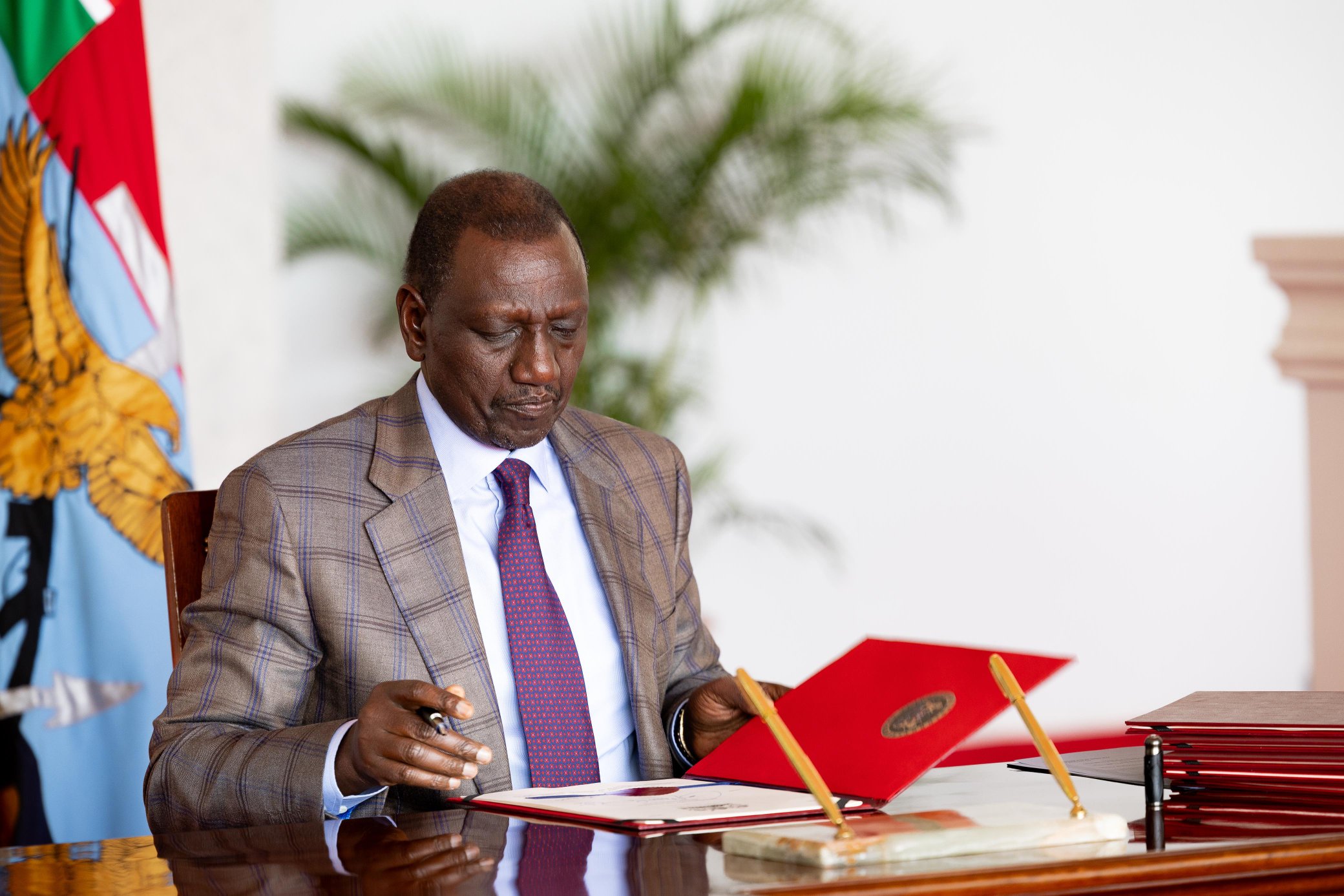Safaricom AI Unmasks Vast Money Laundering Scheme in Kenya's Betting Sector

Safaricom, Kenya’s largest telecommunications provider, has disclosed the detection of money laundering activities linked to various betting firms operating on its widely used M-PESA mobile money platform. This significant finding comes after the company implemented advanced artificial intelligence (AI) tools designed for monitoring suspicious financial transactions. According to Safaricom’s 2025 Sustainability Report, their upgraded anti-money laundering (AML) system successfully “detected money laundering through betting platforms” and also “flagged suspicious international money transfers,” indicating a sophisticated approach to combating illicit financial flows.
The telco detailed its enhanced compliance measures, stating, “We deployed real-time monitoring, machine-learning detection systems, and sanctions screening to identify suspicious activities.” The report further emphasized that “Compliance with Ultimate Beneficial Ownership verification and regulatory reporting requirements remains a priority” for the company. These revelations emerge amidst a rapidly expanding betting industry in Kenya, fueled by widespread youth engagement in sports and the prevalent use of mobile payment systems like M-PESA.
Kenya’s betting market is substantial, with punters estimated to spend over KES 350 billion (approximately $2.7 billion) annually. A significant portion of this, exceeding KES 160 billion (around $1.2 billion), transacts through M-PESA, making the platform an attractive target for criminal enterprises seeking to launder illicit funds. Safaricom’s AI-driven monitoring systems are now capable of tracking millions of daily transactions in real-time, greatly enhancing their capacity to identify potential instances of money laundering, fraud, and sanctions breaches. M-PESA alone processes upwards of 10 million transactions daily, valued at an estimated $200 million.
While Safaricom did not explicitly name the implicated betting firms, its findings resonate with concerns previously articulated in government reports regarding the role of Kenya’s gaming sector in facilitating illicit financial flows. The betting industry has experienced remarkable growth over the last decade, with online platforms such as SportPesa, Betika, and Betin offering convenient avenues for global sports betting. However, this same digital convenience has inadvertently created new vulnerabilities that criminals can exploit.
Previous government assessments have indicated that while the risk of money laundering by individual bettors is relatively low, the potential for such activities is significantly high among betting firm owners, many of whom are foreign nationals. Authorities suspect that some companies may commingle legitimate gambling proceeds with funds derived from criminal activities, including corruption, drug trafficking, and fraud, before subsequently cashing out these combined amounts as seemingly legitimate winnings. The government estimates the gaming sector’s total revenue at KES 204 billion, describing it as an “ideal market for criminals seeking to launder dirty money.”
One official assessment outlined a common modus operandi: criminals could “feed their illicit money into betting wallets, bet a small share of the cash before cashing out the bulk as winnings.” These proceeds are often then transferred overseas, contributing to capital flight. Specifically, mega jackpot payouts have been identified as potential conduits for injecting and extracting large sums of illicit cash into and out of the country.
In response to these challenges, the Kenyan government has frequently taken stringent action against betting companies concerning licensing, tax compliance, and suspected money laundering. This has led to the revocation of licenses for several operators and mandates for others to improve their reporting of significant transactions and customer verification processes. Safaricom’s latest disclosure underscores a broader trend where financial institutions and mobile operators are intensifying their compliance controls under increasing regulatory scrutiny. The company affirmed its dedication to comprehensive AML compliance and collaborative engagement with regulatory bodies, recognizing that “Failure to comply with AML obligations could jeopardise our licence to operate.”
Betting remains one of Kenya’s most prominent digital industries, propelled by a strong national enthusiasm for sports and a young, mobile-first population. With over 65% of Kenyan youth facing unemployment or underemployment, betting often serves a dual role as both entertainment and a perceived avenue for income. However, growing concerns about mounting debt, addiction, and financial crime continue to present a dilemma for regulators, who must balance the promotion of innovation with the imperative to mitigate social and economic risks. Safaricom’s recent revelation regarding money laundering within this multi-billion-dollar industry brings the critical issue back into sharp public focus.
You may also like...
Mid-Air Terror: Super Eagles' Flight in Dramatic Emergency Landing

The Nigeria Super Eagles delegation experienced a mid-air scare when their chartered flight from Polokwane to Uyo was fo...
High Stakes Showdown: Super Eagles Battle Benin in Must-Win World Cup Qualifier
)
Nigeria's Super Eagles face the Benin Republic's Cheetahs in a crucial 2026 FIFA World Cup qualifier in Uyo. With Benin ...
Massive Update: Jessica Rothe Confirms 'Happy Death Day 3' Will Conclude Tree's Journey

Fans of the "Happy Death Day" franchise can rejoice as star Jessica Rothe confirms the third film is in the works. While...
Sean Penn Joins Lumière Festival in France as Park Circus Expands Warner Classics Library with Gem-Studded Slate

Sean Penn, guest of honor at the Lumière Film Festival in Lyon, delivered an emotional opening speech celebrating Jack N...
South Africa's Poetic Remembrance: The Lasting Echo of Sarah Baartman

A new documentary delves into the life of Sarah Baartman, moving beyond exploitation to highlight her depth, multilingua...
Celebrity Shockwave: Katie Price's New Look Ignites Public Worry!

Katie Price has sparked alarm among fans with a recent Instagram post showcasing dramatic weight loss, fueling fears abo...
Strictly Stunner: Shocking Spoiler Leaves Fans Breathless and Baffled!

This week's Strictly Come Dancing saw the second elimination results prematurely leaked online, much to the dismay of fa...
Madame Tussauds London's Quirky New Exhibit: A Wax Sausage Roll Joins the Stars

Madame Tussauds London has unveiled its first-ever food item wax figure: a Greggs sausage roll. This unique addition cel...




